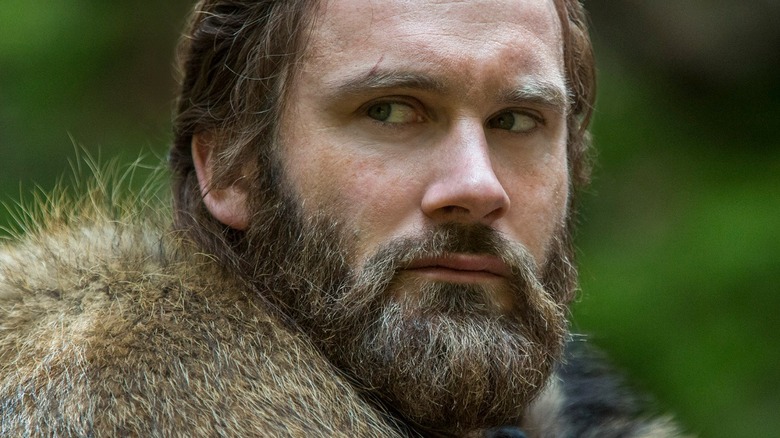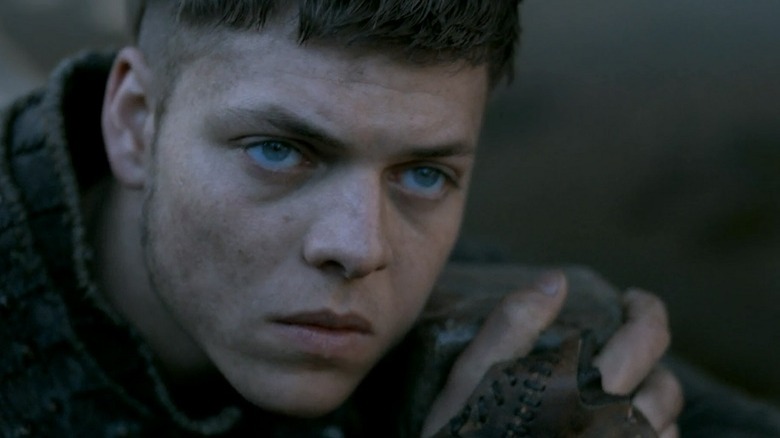Vikings Made A Embarrassingly Noticeable Mistake About Russia
While many look to screens big and small for excursions outside of the real world, every now and again, one can't help but become enthralled by historically-based projects. From cinematic war stories like "Dunkirk" to television dramas like "Peaky Blinders," there's something undeniably fascinating about putting real-life events through a fictitious lens. History's "Vikings" proved no different as it focused on the story of Ragnar Lothbrok (Travis Fimmel) during his ascent to Scandinavian royalty — one that involved plenty of pillaging, warfare, and bloodshed from allies and enemies alike along the way.
Even though Ragnar met a grizzly end during "Vikings" Season 4, thus allowing his sons to take the spotlight, viewers still predominantly enjoyed what they saw out of the series (via Rotten Tomatoes). The elaborate costumes, impressive battles, and overall gripping story were more than enough to keep fans engaged until the very end. Its sequel series, "Vikings: Valhalla," didn't fare nearly as well, but it did little to tarnish the reputation of its predecessor. Speaking of, it's worth highlighting that while "Vikings" was widely beloved throughout its years on the air, it wasn't exactly perfect.
One of the biggest issues that stems from "Vikings" is its historical inaccuracies. Among its most glaring and rather embarrassing of the bunch pertains to Russia.
Russia wasn't actually called Russia during the events of Vikings
For a portion of "Vikings" Season 6, audiences follow Ragnar's son, Ivar the Boneless (Alex Høgh Andersen), and his dealings in the region in and around Russia. During the 9th century, when the show takes place, it was known as Kievan Rus', with the name Russia not coming into being until the 15th century (via Rusmania). The problem is that "Vikings" repeatedly refers to this locale as Russia despite it not taking on that identity yet in the historical record. That's a pretty staggering error to make, but according to "Vikings" creator and writer Michael Hirst, he did his best to avoid such discrepancies.
"I tried very hard not to be too inventive. We wanted everything to remain as authentic as possible," Hirst said in an interview with History Extra, explaining that he found himself having to use his best judgment on occasion. He adds, "You can't always say whether it's accurate because nobody knows, but you can ask whether it's plausible." Therefore, with incomplete and often unreliable historical information to work with, Hirst and his team worked hard to produce as engaging, realistic television as possible. Still, that doesn't account for the mislabeling of Russia, which is fairly common knowledge in historical circles.
At the end of the day, there's no such thing as a perfect historically-based fiction project. Details will always be off, timelines won't match up, or events will unfold in different ways, but in the case of how "Vikings" handled the Kievan Rus', one can't help but scratch their head.

